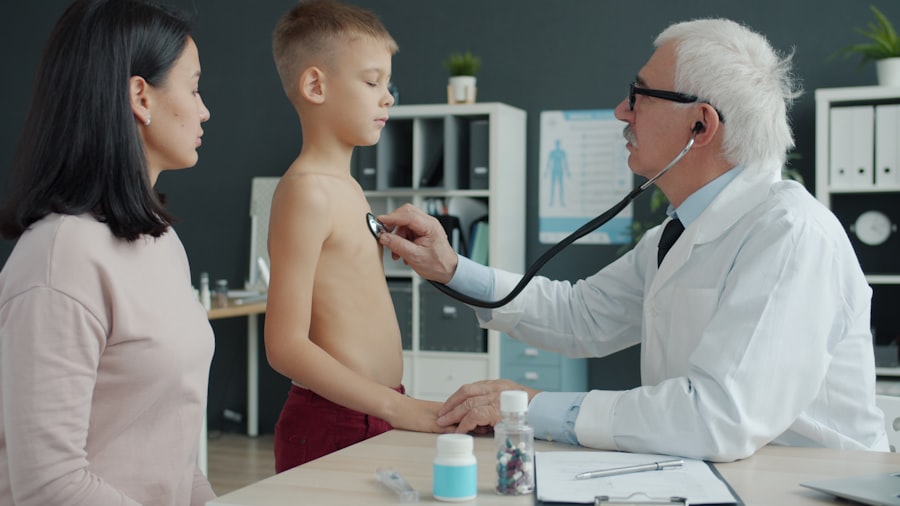Healthcare advertising agencies have emerged as pivotal players in the complex landscape of the medical and wellness industries. These specialized firms focus on promoting healthcare services, products, and initiatives, bridging the gap between providers and patients. With the healthcare sector becoming increasingly competitive, the need for effective communication strategies has never been more critical.
Healthcare ad agencies are tasked with not only crafting compelling messages but also ensuring that these messages resonate with diverse audiences, from patients to healthcare professionals. The evolution of healthcare advertising has been influenced by various factors, including technological advancements, regulatory changes, and shifting consumer expectations. As patients become more informed and empowered, the role of healthcare ad agencies has expanded beyond traditional marketing.
They now engage in multifaceted campaigns that encompass digital marketing, social media outreach, and community engagement. This transformation reflects a broader trend in which healthcare organizations recognize the importance of building trust and fostering relationships with their audiences.
Key Takeaways
- Healthcare ad agencies specialize in promoting wellness and health-related services through targeted marketing strategies.
- They employ innovative advertising techniques to effectively reach and engage diverse audiences.
- Successful campaigns demonstrate the power of creative messaging in improving public health awareness.
- Ethical marketing is crucial to maintain trust and integrity in healthcare communications.
- Selecting the right agency is key to maximizing impact and advancing public health goals.
The Role of Healthcare Ad Agencies in Promoting Wellness
Healthcare ad agencies play a crucial role in promoting wellness by creating awareness about health issues, preventive measures, and available services. They develop campaigns that educate the public on various health topics, from chronic disease management to mental health awareness. By leveraging data-driven insights, these agencies can tailor their messaging to address specific community needs, ultimately encouraging healthier lifestyles and behaviors.
For instance, a healthcare ad agency might collaborate with a local hospital to launch a campaign focused on diabetes prevention. This could involve creating informative content that highlights the importance of regular check-ups, healthy eating, and physical activity. Through targeted social media ads, community workshops, and partnerships with local influencers, the agency can effectively reach at-risk populations and motivate them to take proactive steps toward their health.
Such initiatives not only enhance public awareness but also contribute to reducing healthcare costs by preventing diseases before they escalate.
Innovative Strategies for Healthcare Advertising

In an era where consumers are inundated with information, innovative strategies are essential for healthcare advertising to stand out. One such strategy is the use of storytelling to create emotional connections with audiences. By sharing real-life patient experiences or success stories, healthcare ad agencies can humanize their messages and foster empathy.
This approach not only captures attention but also encourages individuals to engage with the content on a deeper level. Another innovative tactic is the integration of technology into advertising campaigns. Virtual reality (VR) and augmented reality (AR) are increasingly being utilized to provide immersive experiences that educate patients about medical procedures or health conditions.
For example, a healthcare ad agency might develop an AR app that allows users to visualize how a surgical procedure is performed or how a particular medication works within the body. Such interactive experiences can demystify complex medical concepts and empower patients to make informed decisions about their health.
Case Studies of Successful Healthcare Ad Campaigns
| Campaign Name | Healthcare Sector | Objective | Key Metrics | Results | Duration |
|---|---|---|---|---|---|
| Healthy Heart Initiative | Cardiology | Increase awareness of heart disease prevention | Impressions: 2M, CTR: 4.5%, Engagement Rate: 12% | 30% increase in clinic visits, 15% rise in preventive screenings | 6 months |
| Flu Shot Awareness | Immunization | Boost flu vaccination rates among adults 50+ | Impressions: 1.5M, CTR: 5.2%, Conversion Rate: 8% | 25% increase in vaccination appointments | 3 months |
| Diabetes Management Program | Endocrinology | Promote diabetes self-care education | Impressions: 1.2M, CTR: 3.8%, Sign-ups: 18,000 | 40% increase in program enrollment | 4 months |
| Mental Health Matters | Mental Health | Reduce stigma and encourage therapy sessions | Impressions: 2.5M, CTR: 6.1%, Engagement Rate: 15% | 50% increase in therapy bookings | 5 months |
| Healthy Kids Campaign | Pediatrics | Promote childhood vaccination and wellness checks | Impressions: 1.8M, CTR: 4.9%, Conversion Rate: 10% | 35% increase in pediatric appointments | 4 months |
Examining successful healthcare ad campaigns provides valuable insights into effective strategies and approaches. One notable example is the “Real Beauty” campaign launched by Dove, which aimed to challenge conventional beauty standards and promote body positivity. While not exclusively a healthcare campaign, it had significant implications for mental health by encouraging self-acceptance among women of all shapes and sizes.
The campaign utilized powerful imagery and relatable narratives to resonate with its audience, ultimately leading to increased brand loyalty and positive social impact. Another compelling case study is the “Know Your Lemons” campaign by the nonprofit organization Worldwide Breast Cancer. This initiative aimed to raise awareness about breast cancer symptoms using a simple yet impactful visual of lemons to represent different signs of the disease.
The campaign effectively utilized social media platforms to spread its message virally, reaching millions of individuals worldwide. By simplifying complex medical information into easily digestible content, the campaign empowered women to take charge of their breast health and seek timely medical attention.
The Importance of Ethical Marketing in Healthcare
Ethical marketing is paramount in the healthcare sector due to the sensitive nature of health-related information and the potential consequences of misinformation. Healthcare ad agencies must navigate a landscape fraught with ethical considerations, ensuring that their campaigns promote accurate information while respecting patient privacy and autonomy. Misleading advertisements can lead to harmful consequences, including misdiagnosis or inappropriate treatment choices.
To uphold ethical standards, healthcare ad agencies often adhere to guidelines set forth by regulatory bodies such as the American Medical Association (AMA) and the Federal Trade Commission (FTC). These guidelines emphasize transparency, honesty, and respect for patient rights. For instance, when promoting pharmaceutical products, agencies must provide clear information about potential side effects and contraindications.
By prioritizing ethical marketing practices, healthcare ad agencies can build trust with their audiences and contribute positively to public health outcomes.
The Future of Healthcare Advertising

The future of healthcare advertising is poised for transformation as technology continues to evolve and consumer behaviors shift. One significant trend is the increasing reliance on data analytics to inform marketing strategies. Healthcare ad agencies are harnessing big data to gain insights into patient preferences, behaviors, and demographics.
This data-driven approach enables agencies to create highly targeted campaigns that resonate with specific audience segments. Moreover, the rise of telehealth services has opened new avenues for healthcare advertising. As more patients seek virtual consultations and remote care options, ad agencies must adapt their strategies to promote these services effectively.
This may involve creating educational content that addresses common concerns about telehealth or highlighting success stories from patients who have benefited from virtual care. As telehealth becomes more mainstream, healthcare ad agencies will play a vital role in shaping public perceptions and encouraging adoption.
Choosing the Right Healthcare Ad Agency for Your Organization
Selecting the right healthcare ad agency is a critical decision for any organization seeking to enhance its marketing efforts. Several factors should be considered during this process. First and foremost, it is essential to evaluate the agency’s expertise in the healthcare sector.
An agency with a proven track record in healthcare marketing will have a deeper understanding of industry nuances, regulatory requirements, and audience dynamics. Additionally, organizations should assess the agency’s creative capabilities and innovative approaches. A successful healthcare ad agency should be able to demonstrate its ability to develop compelling campaigns that resonate with target audiences while adhering to ethical standards.
Reviewing case studies and client testimonials can provide valuable insights into the agency’s effectiveness and alignment with your organization’s goals.
The Impact of Healthcare Ad Agencies on Public Health
Healthcare ad agencies have a profound impact on public health by shaping perceptions, promoting wellness initiatives, and fostering informed decision-making among patients. Through innovative strategies and ethical marketing practices, these agencies play a vital role in bridging the gap between healthcare providers and consumers. As the landscape of healthcare continues to evolve, so too will the strategies employed by these agencies in their quest to improve health outcomes for individuals and communities alike.
The future holds exciting possibilities for healthcare advertising as technology advances and consumer expectations shift. By embracing data-driven insights and innovative approaches, healthcare ad agencies can continue to make meaningful contributions to public health while navigating the complexities of an ever-changing industry landscape. Ultimately, their work not only enhances brand visibility but also empowers individuals to take charge of their health in an informed manner.



